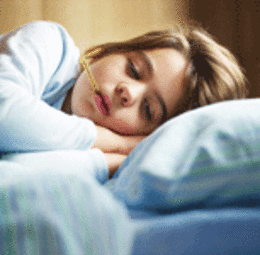
Despite national health forecasters calling for an average flu season, Moorestown mother of four Cathy Gaus insisted that her son Andrew, 17, a senior at Camden Catholic High School in Cherry Hill, receive the free flu vaccination offered at school. “Andy has chronic asthma, which makes him high risk for the flu,” she says. However, she took a pass on her other son, Tim, 16, getting vaccinated. “He’s not at high risk for it, and I wasn’t sure how it would affect him,” says Gaus, noting she also skipped the chicken pox vaccination for Tim as well.
The emergence of new strains of the flu virus in the last few years has prompted many area schools to tighten their policies about sickness. In addition to investing more resources into preventive health education, they’re vigorously enforcing stricter rules about when sick students can return to class. And, they’re working in tandem with regional governments to ensure cases don’t go unreported. Yet, while it’s mandatory in New Jersey for kids ages 5 or younger to receive the flu vaccine, public schools haven’t followed suit. Voorhees Public School District spokesperson Irene Afek says that at this time her district is not considering making vaccination mandatory. “Nor,” she adds, “have I heard of any other district requiring the flu vaccine.”
They are, however, putting more rules in place regarding students already diagnosed with the flu. “In general, if a student has flu-like symptoms, they must be fever-free for 24 hours without medications before they can return,” says Susan Bastnagel, spokesperson for the Cherry Hill School District. The Washington Township School District is also enforcing more stringent policies on students coming to school when sick. “When the nurses see an abnormally high rate of absences, we notify our principal,” says Jenny Hudock, a nurse at Orchard Valley Middle School. “Our district monitors influenza-like illnesses weekly during the flu season, and if more than 15 percent of the student population is reporting sick, we also notify the county health department.”
“Certainly, last year’s flu season, marked by a worldwide pandemic of the H1N1 strain, has everyone on edge,” says Holly Cucuzzella, health educator for the Burlington County Department of Health. At the end of last flu season (roughly the end of March 2010), the U.S. Centers for Disease Control and Prevention (CDC) estimated that about 59 million Americans had contracted the H1N1 virus. Of those, 265,000 were hospitalized and 12,000 died, including a 17-year-old Rancocas Valley High School student. “People shouldn’t panic, but should be armed with the latest information,” says Cucuzzella.
It’s not just schools taking a cautious approach. The Garden State Discovery Museum in Cherry Hill posts a strict policy of not admitting any child—or adult—with flu-like symptoms. “If they’re too sick to go to school, they’re too sick to visit the museum,” says museum director Kelly Lyons. As well, the museum urges parents not to bring in children who have started a course of antibiotics within 24 hours. “It’s amazing to us how many parents will bring a child that is clearly not feeling well to the museum,” says Lyons. To that end, the museum has posted on their website a list of sick-child symptoms to look for, to help parents determine whether to postpone their museum visit.
Another key to flu prevention, she says, is to practice good hand hygiene. “There are still those who we call ‘flickers,’ who barely run their hands under the water,” Cucuzzella says. “Waterless hand sanitizer is fine, but nothing is better than scrubbing hands with soap and hot water for an appropriate amount of time.”
In addition both the Cherry Hill and Washington Township districts also provide hand sanitizer throughout their buildings.
Some good news, according to Cucuzzella, is that this year’s high-dose flu vaccine is designed to provide protection from two different strains of seasonal virus as well as H1N1. As a result, most individuals over age 10 will only need to receive one shot. Depending on their personal health history, children ages 9 and younger may need one or two shots. Says Cucuzzella, “The entire community will be better off the more everyone stays on top of the flu as individuals.”
Published (and copyrighted) in Suburban Family Magazine, Volume 1, Issue 10 (December, 2010).
For more info on Suburban Family, click here.
For information about advertising in Suburban Family, click here.
To find out where to pick up your copy of Suburban Family, click here.




